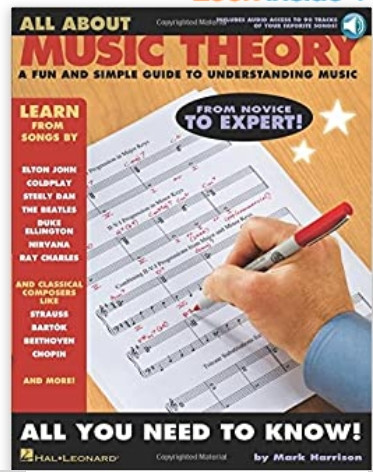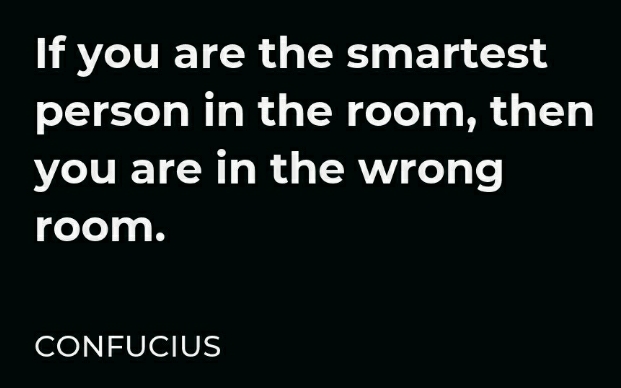What is the absolute best book to get to further enhance my knowledge of theory on the bass, what follows what, and how to use the differing progressions in context to the song that I am trying to play. I would like a deeper understanding of theory but want it in a reference book that I can read. I have heard of Hal Leonard, Ariane Cap and several others. Please help!
Ariane Cap is all you need
She had several for sale. Which would be the best to start with?
Actually, I am ordering both…they’ll both be here Monday…one on theory and one about patterns
Alternatively if you want a huge coffee table book of basses then " Geddy Lee’s Big Beautiful Book of Bass" is your answer. Absolutely no theory just lots and lots and lots of beautiful basses to look at ![]()
I almost purchased that one too. But my budget for bass books is limited by how much I can hide from my new little wife.
I recommend Theory for the Bass Player first…
If she is new, do this…
Get a few ratty old boxes.
Buy things, take them out of their packages.
Put new things in ratty old boxes in basement, attic, back of a closet.
Wait a few days.
Pull out ‘old box of stuff you put out of the way’.
You’re welcome.
What a great idea! I can see how this would only work with a new spouse.
This is what I use and I believe it is one @JoshFossgreen reccomends.

I have that one, and it’s going in the “donate” pile. It depends too much on reading both treble and bass clef rather than actually concentrating on theory. I was disappointed and frustrated.
I’m intrigued by Capp’s book but worry that it’s going to be more of the same.
I would look at this in two different ways - learning music theory, and learning how it applies to bass.
I wouldn’t even consider learning basic music theory on a stringed instrument myself, but YMMV. It’s a lot more visual and understandable to learn it in relation to a keyboard.
Applied music theory is another story; my thing there is I am not sure I would want to learn it from a book. Instead I probably would look to something more like Mark Smith’s Chord Tones course.
But I probably have this view because that’s how I did it.
That is an excellent point. I also have Edly’s Music Theory for Practical People, the only theory book from which I’ve gleaned useful information — probably because it’s not primarily keyboard oriented.
Already signed up for the Chord Tones course during the sale. I’ll be starting it when I finish my 2nd run through B2B.
As an aside, I taught technical writing for a bit. One of my assignments was to write instructions for making a peanut butter and jelly sandwich. I then brought in all the ingredients and had the students make the sandwich according to their classmates’ instructions — and only the instructions. No assumptions, no use of prior knowledge. It was messy. From my experience with music theory books, the writers would fail the PB&J test badly.
Yeah. If you ever need a good job interview question to ask someone to gauge their teamwork and communication skills, pick the simplest thing you can find on their resume and ask them to teach you to do it.
I used Ari’s first book in conjunction with Mark’s Chord Tones. I know theory already from sax.
These two together helped lay down the theory on the fretboard for me. My biggest downfall in music is memorizing keys, scales, arpeggios, etc. I can do it without thinking a lot on sax, in some keys, but the minute I start to think about it, dead stop. Same on bass. I still practice scales in all 12 keys on sax daily, mainly because there are no ‘easy shapes’ on sax. I can close my eyes and play every last one. Ask me to recite the notes…nope nope nope.
The two above resources together (with Mark’s scales course for that matter) are really good fundamental courses and book that you could literally spend years using.
Online courses are interesting. Most are less than the price of two to three private lessons and people are still hesitant. They are a steal in this regard and you have them for life. Private lessons often become scribbled notes in a book you can’t read or remember the point of later on. I view private lessons as a tool to use when you know what you want to work on or correct.
The biggest thing I find about online lessons is once you get to the ‘do this in all 12 keys’ part of any theory, people bail. That is a load of memorization. Most folks like the snippets packed in easy to do chunks, which is why I think Josh’s course is so well done. It is also one of the reasons why I think Part 2 is not Part 2 yet. Josh acknowledged this in our last live hang he dropped in on (amongst other things as to the ‘why no course part 2).
There is a point where you decide if you want to learn, memorize and play songs, or if you want to learn how to play an instrument. These are two different things to me. Neither is bad or wrong, two different goals with different paths.
I’ve mentioned that exercise several times here, along with brushing your teeth… and the reason is mostly the same as why nobody ever gives you a book to learn those tasks: theory is best learned through application.
What a great great statement.
I’m thinking a lot of us struggle in our basements cause there is no “showing each other” aspect. And learning little tidbits while doing. Etc.
This is how so many learn in New Orleans not just in school but on the streets, on front porches, from uncles, aunts brothers sisters.
Truly is a catalyst for learning.

I often tell people that the most important part of being an artist is not showing people and the crap you made that didn’t work. If you want to be smart (or good at something) the trick is knowing where you aren’t. Always keep learning, always keep looking for the best ways to do things that you can incorporate into your own. 
It’s often difficult to have good debates with some people… they think you’re trying to convince them to change their mind when you’re actually inviting them to change yours.
It’s often been my frustration, not just in music, that I’ve rarely had truly skilled people to learn things from.